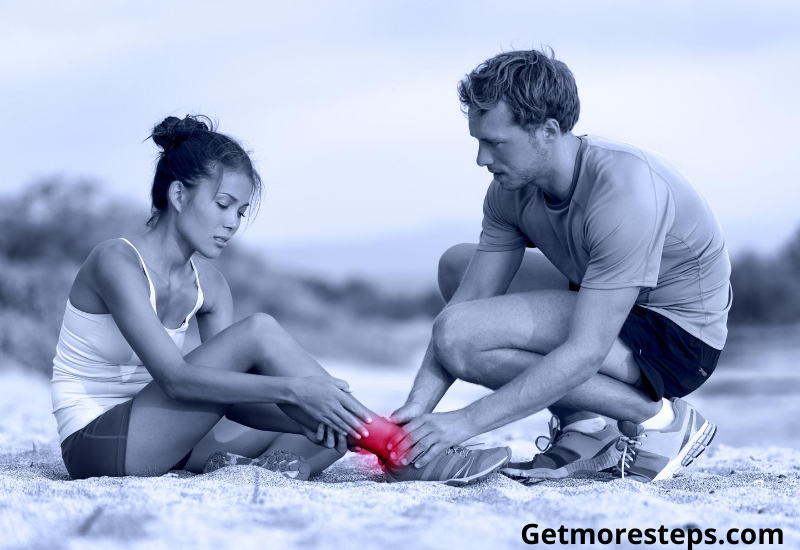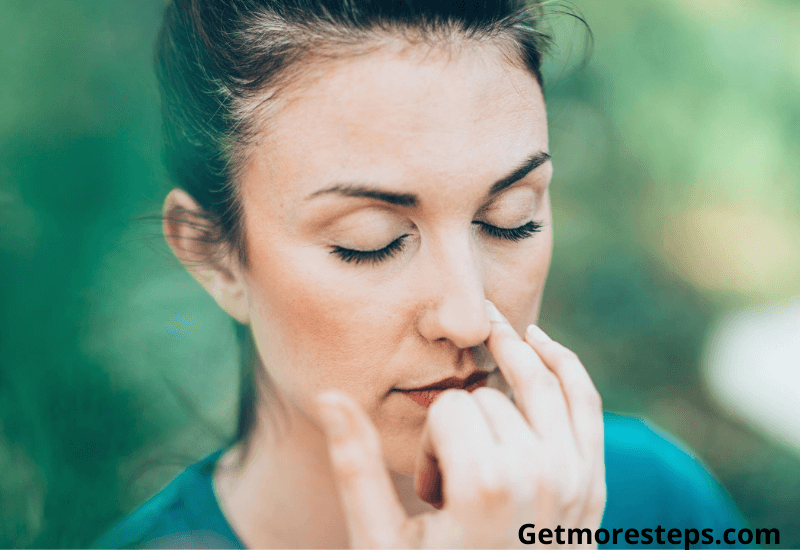Walking is not only one of the easiest exercises to do but also one of the healthier among many sports. Everyone can walk as it costs nothing, and it can be done everywhere like at the beach, in town, on trails, around the lake, you name it! And the cool thing is that you only need a good pair of walking shoes and some motivation. You won’t believe how many health benefits you get from walking until you do it. So if you want to know what walking will do to your body, read on.
It Boosts Your Metabolism
Contents
- 1 It Boosts Your Metabolism
- 2 It Alleviates Joint Pain
- 3 It Prevents Diseases
- 4 It Helps You Lose Weight.
- 5 It Improves Your Digestion
- 6 It Strengthens Your Whole Body
- 7 It Alleviates Stress
- 8 Your Body Gets Vitamin D
- 9 It Improves Your Sleep
- 10 It Strengthens Your Heart
- 11 It Flattens Your Stomach.
- 12 It Improves Your Mood
- 13 Can Injuries Occurred While Walking?
- 14 How Long Can I Walk Without Stopping?
- 15 How Should I Breathe When Walking
- 16 How Long Does it Take to See Results from Walking?
- 17 Conclusion
Walking for an extended time every day boosts your metabolic process. When you walk, your body requires more energy, which automatically increases your metabolism. By walking briskly uphill or moderately for about 60 minutes, you rev up your metabolism. Walking is excellent, but if you don’t pay attention to the quality of the food you eat, your metabolism will slow down. Nutrition research found that drinking water, eating quality food, exercising, and sleeping enough hours boost metabolism.

It Alleviates Joint Pain
Walking is a low-impact exercise that doesn’t put stress on your joints (feet, knees, and hips). Walking keeps your joints healthy as it increases blood flow to cartilage and helps strengthen the muscles surrounding your joints.
Research shows that walking for about an hour per week or 10 minutes daily can prevent arthritis pain and disability in older adults. When your muscles are strong, they can handle more weight and, therefore, can better support and protect your joints. Also, walking burns fat, and just a few pounds less can improve your joints’ health.

It Prevents Diseases
Research found that walking at a fast pace of 4 mph for 30 minutes a day reduces the LDL level “bad” cholesterol” and improves the “good HDL cholesterol”. It also has been proved that walking uphill is more efficient in lowering the LDL than walking on flat terrains. So if you have the opportunity to go hiking in the mountains, go ahead and do it! If you don’t have the opportunity, use the steps. When you walk at a brisk pace, your heart beats faster, you breathe harder, and your muscles take up more glucose, which lowers your blood sugar level and makes insulin work better. Other studies show that walking reduces the risk of mental and physical diseases such as depression, stroke, type 2 diabetes, high blood pressure, cancers, and dementia.

It Helps You Lose Weight.
Yes.. walking burns fat and make you lose extra pounds. Studies show that walking 10000 steps a day at 4mph 6 to 7 days a week can make an overweight person lose one pound per week. So if you want to lose weight, put your walking shoes on and go for it! Just don’t forget to dehydrate and watch your alimentation. If you are new to walking, start slowly, and avoid burnout. Check your steps using an app and add 1000 daily steps every week or every two weeks.

It Improves Your Digestion
It’s well known that walking after a meal helps in better digestion. Brisk walking for about 30 to 40 minutes a day keeps the digestive issues at bay. Studies have shown that walking briskly stimulates intestinal contraction and helps the stool pass through the colon more quickly. Other studies found that walking at a brisk pace decreases blood sugar, helping restore the pancreas and prevent diabetes and cardiovascular risk.

It Strengthens Your Whole Body
People tend to think that walking only muscles the lower part of the body. But in fact, other muscle groups get a workout like the arms, heart, back, and abdominals. You understand now why walking is a complete sport that makes work the whole body.
Walking at a fast pace works your muscles and enables them to stretch while improving posture. Walking not only muscles your body, but it also helps to relax, sleep better, and it releases endorphins. Fitness walking strengthens your thighs, glutes, and calves. But that’s not all, it also accelerates your heart rate, which makes you breathe harder, and this effort naturally muscles your abdominals.
Additionally, your abdominals work constantly to keep your body balanced while walking and act as stabilizers. Lastly, when walking briskly, you increase your pace and lengthen your stride, making your arms swing. This natural movement helps strengthen your muscles in your upper body as well as in your back.

It Alleviates Stress
By now, you should know that walking reduces weight, tones your body, and makes you digest food easily. But did you know that walking also fights against depression? Studies in the UK show that walking in nature relaxes your soul and therefore reduces anxiety. Walking at a brisk pace boosts the production of stress-busting endorphins, which reduce stress hormones and prevent depression.
Walking regularly improves your mood and self – esteem. Studies found that walking reduces up to 30% the risk of becoming depressed and helps people who suffer from depression recover.

Your Body Gets Vitamin D
Vitamin D is essential for your body to work properly; without it, your immune system would be weak. And the sad thing is that food today barely contains vitamin D. The sunlight is your best natural source of vitamin D, and when you walk outside, you get plenty of it, whether in the winter or summer. You’ll get the most out of your vitamin D at certain hours of the day. The best would be to walk between 10 AM and 3 PM for about 15 minutes for your body to get all the vitamin D it needs.

It Improves Your Sleep
Studies have shown that walking helps improve sleep at night and that there is no need to engage in high-intensity exercise to have a good sleep. So you can simply take more steps during the day, perhaps strolling for 20 minutes after lunch at work or walking your dog in the park at night – it may be sufficient to have a better sleep.

It Strengthens Your Heart
Walking has been proved to be one of the most effective ways to improve heart health. Walking is also one of the best physical activities because people of all ages and different fitness levels can participate. Studies show that walking prevents diseases such as stroke, obesity, type 2 diabetes, metabolic syndrome. And even if you already have heart disease, walking will help prevent further illness and help you live a longer and healthier life.

It Flattens Your Stomach.
Walking is not an intense physical exercise, but it does a great job when it comes to flattening your stomach. However, you won’t see any result if you don’t eat healthy food and hydrate often. Brisk walking combined with low carb Index food will help to flatten your stomach faster.

It Improves Your Mood
Brisk walking, like many other cardiovascular exercises, increases the production of stress-busting endorphins. Those endorphins are similar to the drug morphine, and when activated in the brain, it makes you feel well-being, and boost your mood.

Can Injuries Occurred While Walking?
Although walking is a low impact exercise, you can get injured if you don’t be careful. For instance, wearing worn-out or unfitted shoes can cause you to change your posture and the way you walk, which leads to injuries. Walking briskly straight away without any warm-up can also cause damages to your joints and muscles. We often don’t think about it, but drinking water is vital to avoid getting dehydrated. And lastly, if you don’t pay attention to where you walk, you could hurt yourself seriously. So before you go for a walk, drink water, wear the right pair of shoes and walk moderately at least 5 minutes before you get to a fast pace.

How Long Can I Walk Without Stopping?
Well, it depends on how healthy you are, the weather, and your lung capacity. If you have heart failure or cope with other health issues, you will have to rest every 30 to 40 feet during your walking workout. If you are a healthy person, you might be able to walk 5 to 7 miles without having to rest. But the biggest concern for those who want to cover long distances is “hydration.” People often forget to drink water when walking long miles to replenish themselves. Your body can’t survive without water, and if you plan to walk long distances, you’ll need to drink water every 2 miles. Otherwise, you’ll get dehydrated, and this could be extremely dangerous, especially if it’s hot.

How Should I Breathe When Walking
The best would be to adopt a breathing technique that is comfortable for you, and you need to stick to it from your first step to your last. You should breathe out into a count of two through your nose and exhale to a count of four. When you breathe through your nose, this conditions the air and filters dust particles while maintaining the right balance of oxygen and carbon dioxide in your blood. You should be able to speak in full sentences when you walk at a moderate pace of 3.5 mph. When you accelerate your pace at 3.75 mph, you should be able to keep a conversation limited to short sentences. When you reach a pace of 4 mph or faster, you’ll feel breathless and able to speak only a few words at a time

How Long Does it Take to See Results from Walking?
Your mood will increase, and you’ll start to feel relaxed after your first walking session. You’ll also be more productive and confident within a few days of starting walking. You’ll notice an improvement in about 4 to 6 weeks, and you’ll be able to increase your pace with less effort.
If your goal is to lose weight, you must eat the proper food because walking alone won’t make you lose extra pounds. It will take about 6 months of regular walking to maintain healthy blood pressure and blood sugar levels. After a year of intensive walking, you’ll look better and stronger. After a few years of regular walking will slow aging and will make you look younger.

Conclusion
After reading this article, you understand now how walking can improve your overall health and make you stronger. There are many ways you can incorporate walking into your daily life. You can walk with your friends or family. If your dog is easy to manipulate outside, take him to do some exercises, he’ll love it!. You are a new mom? No problem, push your stroller, it’s a good trick to make babies fall asleep. And if you are an introvert, get your mp 3 player and listen to your favorite music while walking.
Do you know other health benefits of walking? If so, I would love to know about them.

I don’t know about you, but I love my feet because they allow me to walk and go wherever I want to go. Without them, I would be lost! So I always spoil them with a good pair of walking shoes to make sure they are as comfortable as possible. If you take care of your feet, they will take care of you and your health. Well, fitted shoes will protect them and allow you to get more steps without pain!
Read more about me
